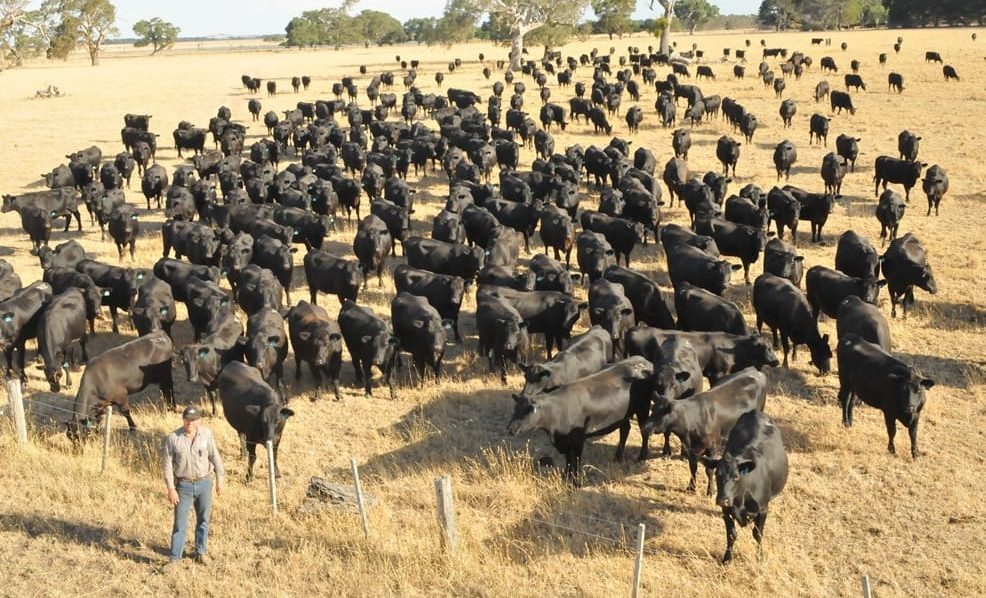Australians are gripped by feelings of doom about the state of the world. It’s time to throw the phone away | Peter Lewis

- by Admin
- December 17, 2024

As 2024 approaches end of days, I’m taking comfort in a piece of old technology called a book. I’m not sure it’s a great book but it’s got me thinking about how we might make sense of the cascading crises engulfing our world.
The year closes with way too little action on climate, Trump surfing division back into the White House, global instability boiling over and the totalitarian march of big tech. As we scroll through the doom it’s hard not to conclude history has taken the wrong path.
Neil Howe’s The Fourth Turning is Here offers an alternate way of looking at things. Rather than a linear trajectory, he argues history moves in cycles or saeculums that see the same patterns emerging every four generations.
It builds on an epic piece of scholarship Howe undertook with the late William Strauss in the 1990s which charted American history via a repeating pattern: an existential “crisis” leads to a “high” period of civic reconstruction, followed by a cultural “awakening” before an “unravelling” which inevitably gives rise to the next “crisis”.
Howe argues we are currently in the midst of our latest crisis phase, which began with 2007 GFC’s indictment of global capital and, on his projection, will come to a resolution sometime between now and the mid-2030s.
The notion that we are in a season of crisis speaks to the collective fug many of us are feeling at the end of a year that for many was worse than we expected.
Our polling across 2024 reinforces this pessimism – not just the so-called cost-of-living pressures but a deeper sense that the deal between citizen and government is collapsing.
The different generational perspectives are instructive; the doom is being felt more keenly by those for whom history is in its final chapters than those who are earlier into their story for whom many more found an upside.
The boomers appear tired and defeated, we gen Xers are rightly sick of the instability, while it’s the millennials who seem most ready to embrace the upside in challenging times.
Howe’s thesis has its detractors; at times his telling of history feels a bit contrived to fit the theory, but that’s not my point here. By providing an alternate way of understanding how history flows, his book encourages us to imagine what comes next.
After the second world war’s carnage, nations built an infrastructure of laws and institutions designed to prevent a repeat conflagration, anchored around universal human rights, agreed red lines and consensus-seeking.
A full saeculum on these institutions, and indeed these values are in sclerotic disrepair, captured by the ascendant forces of self-interest; global capital is concentrating wealth, the United Nations cannot prevent genocide, cooperation on climate is stalling.
One of the biggest shifts since the last crisis phase has been in the speed that information is moving; after generations where ideas were transmitted through the written word, the constant scroll has taken ascendancy.
In this world where information is everywhere, fewer of us are reading books. Thirty per cent of us did not read one all year, while just a third got through more than one a season.
Counterintuitively, boomers and gen X say they are less likely to be reading long-form, consuming bits of information served up on platforms designed to steal their attention rather than committing to the longer journey.
As an ageing Xer, I find myself swimming against this tide, reading more in 2024 having made the decision to depart from Twitter, my deep-seated disdain for Meta and a brief but unfulfilling liaison with LinkedIn.
This year I didn’t so much find books, as books found me, referred to by colleagues, friends or one of the many newsletters that provided a platform to go deeper into a subject area.
I was inspired by Maria Farrell’s long essay We Need to Rewild the Internet; I cheered when Daron Acemoglu and Simon Johnson, whose book Power and Progress had changed the way I looked at technology, were awarded the Nobel prize for economics.
I read Richard Flanagan’s haunting memoir Question 7 as he interrogated the fourth tense of Indigenous being and embraced Dan Davies’ The Unaccountability Machine and its hero, Stafford Beer, whose work in cybernetics found meaning in feedback loops.
I was so gripped by Taiwan’s legendary digital minster Audrey Tang’s collaborative work Plurality that I was moved to send an email which ended in their visit to the National Press Club to explain their remarkable experiments in civic democracy.
And I tried but failed to understand Neil Theise’s Notes On Complexity, a reconfiguring of physics, biology and mysticism that identifies information as the connective tissue between entropy and chaos, the place where irreconcilable contradictions are resolved.
Over the year these books built on each other to convince me that nothing is at it seems; that there are patterns and layers within systems that only become apparent when we take the time to observe them.
The point of this somewhat disconcerting shift to the philosophical by a pollster who spends his days seeking to reduce people to simple binary preferences?
To be active citizens worthy of our mandate, we need to not just react to the things in front of us but to find the time to reflect and question our own place in the story.
If there is a silver lining for the Albanese government, it is in our final question of the year where people, notably a majority of millennials, predict things will improve in 2025.
Now it’s time for me to shut up. In summer I ditch the polls and turn to fiction, a more pure form of disinformation, fabulous stories that carry their own embedded truths, finding ways into our hearts that a conspiracy theorist on TikTok could only dream of.
The scroll and the stream and the algorithmic playlist are all designed to steal our attention, not to earn it; and they do so with such success that it crowds out the human need, and even our capacity, to roam and graze information on our own accord.
In Mark Zuckerberg’s world of information overload maybe it is Gutenberg’s older technology, a remarkable innovation that drove enlightenment and freedom through shared understanding, that is our best hope of emerging from this crisis.
The ultimate act of resistance this summer is to slow down, put the phone away and commit to a long read; literature, pulp fiction, true crime, biography, even philosophy – it doesn’t really matter so long as we create the space to let our minds breathe.
The Latest News
-
December 23, 2024News Corp. and Australia Telecom Company Telstra Agree to Sell Foxtel to Streaming Sports Platform DAZN in $2.1B Deal
-
December 23, 2024Alex de Minaur is coming off the ‘best year’ of his career… but he wants more in 2025
-
December 23, 2024Sorry, Charlie. Son of Tiger makes his first career ace, but Team Woods loses to Team Langer on first playoff hole – Australian Golf Digest
-
December 23, 2024DAZN ADVANCES GLOBAL EXPANSION WITH ACQUISITION OF FOXTEL, A LEADING AUSTRALIAN SPORTS AND ENTERTAINMENT MEDIA GROUP
-
December 23, 2024Big-hitting Brit emerges from the shadows after breakout year




